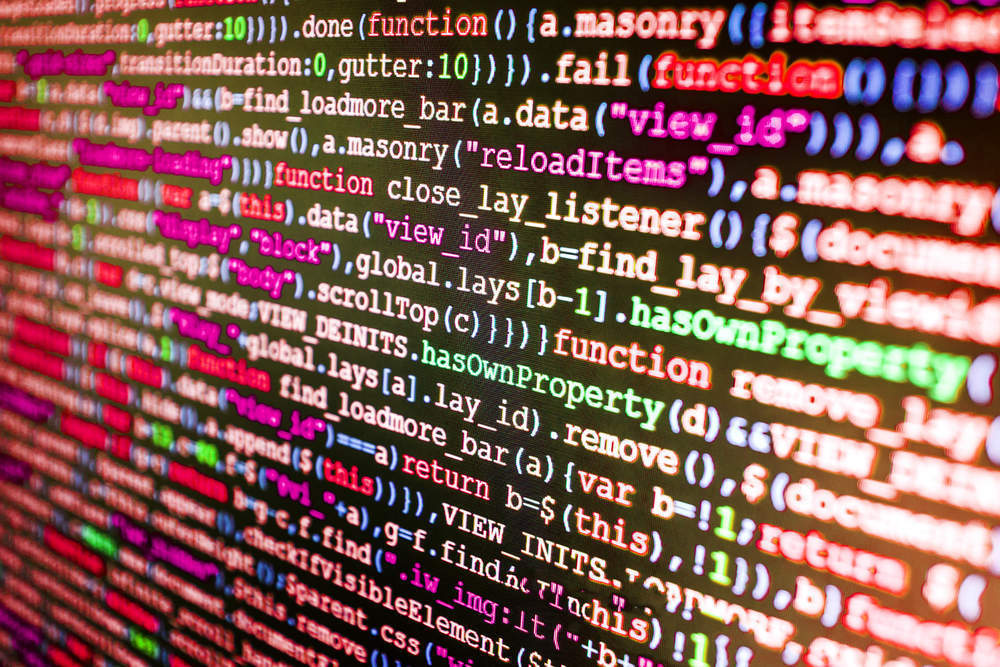
In certain circles, the phrase to break the internet is relatively common parlance. In fact, when it goes viral enough, lots of content is said to break the internet.
However, the likelihood is that it would take more than Kim Kardashian’s latest selfie to truly break the internet.
The internet as a concept is a seriously robust piece of tech. It is a decentralised system meaning that destroying one cable or wire or server won’t impact the whole network.
But on International Internet Day we’re asking, what would it actually take to break the internet and is it possible?
This is the first part of our exploration about what we’d do if the internet went down. If you’re interested in what might happen if the internet went down, you can read about it here.
Could the internet actually go down?
The first question about any potential internet outage is: could it actually happen?
How well do you really know your competitors?
Access the most comprehensive Company Profiles on the market, powered by GlobalData. Save hours of research. Gain competitive edge.

Thank you!
Your download email will arrive shortly
Not ready to buy yet? Download a free sample
We are confident about the unique quality of our Company Profiles. However, we want you to make the most beneficial decision for your business, so we offer a free sample that you can download by submitting the below form
By GlobalDataThe answer is yes, it could, but it’s exceedingly unlikely.
How does the internet work?
The important thing to remember about the internet is that it has no central core.
There is no big cable or server or machine which controls the status of the internet. It is spread among dozens of different networks right around the world. Connections go all the way up into space with satellites, cables travel underneath oceans between continents.
And internet data makes use of all these connections, but not necessarily in the same way. If you and your friend both download the same item from the internet, the data might travel in two different ways to get to you.
One person’s data might go up into space via satellite then back down to the end user. The other person’s data could travel through an undersea cable.
All this means it’s exceedingly difficult to take down the internet. Even if one so-called trunk cable (the high-density real-world cables that carry a lot of information) was cut, the data could simply find another route to get to the end user.
An earthquake in Japan could sever an undersea trunk cable between that country and the US, but data could easily find another route. It might knock out the internet for a short time in some regions, but it’d be back up and running again in no time.
At most, the destruction of a trunk cable or a set of servers could destroy the data on those specific units. The internet at large would be safe.
If all of Google‘s servers were blown up at the same exact second, it would change the internet as we know it, but ultimately we could all jump onto a different browser and carry on. The integrity of the internet at large would be safe.
What could cause the internet to go down?
Solar flares
One thing that could be an issue is solar flares.
The science behind these events is extremely complex but, in short, these are bursts of radiation from the sun. Electrons, ions, and atoms are blasted into outer space. This radiation goes right across the electromagnetic spectrum from radio waves to gamma rays.
These can impact the radio waves we use for communication on Earth, as well as satellites.
The other key issue with solar flares is that they are often accompanied by coronal mass ejections; a huge release of plasma and magnetic field from the sun.
These ejections can trigger geomagnetic storms which, impacting the Earth’s magnetosphere could knock out satellites right around the planet.
Thus, communications satellites such as the ones used to transmit internet data, would no longer work.
In addition, a particularly strong solar flare could emit electromagnetic pulses. These would essentially fry our electronic technology, including all the stuff that makes the internet work.
All of this is reasonably unlikely, although NASA says there’s around a 12 percent chance of us seeing a massive, and potentially damaging, solar super storm before 2022.
However, as the science behind solar flares still isn’t fully understood, some contest this point.
A kill switch
In certain countries, the government has a kill switch which can essentially take down the internet. The Egyptian government used a kill switch during the 2011 Arab Spring uprising. In that case, the government felt that a lack of internet would make it more difficult for protesters to organise their efforts.
Turkey and Iran have also used kill switches to shut down protests. China has never used their kill switch, but they claim to have one.
In the Western world, though, implementing a kill switch would be a lot more tricky, especially in larger countries.
There are simply too many connections outside of a country’s borders to be able to effectively shut them all down.
In 2011, a selection of American senators from across the political spectrum proposed creating a kill switch.
They argued that this would help to defend the US against cyber attacks. However, free-speech advocates argue that the Government could use a kill switch to stop dissenting people from taking action.
Cyberattacks
Could sheer human meddling destroy the internet? Technically no, but in all the ways that matter, yes, absolutely.
Malicious software dispatched to target vulnerabilities in routers could bring the internet to a standstill.
A router, after all, is the device which forwards internet traffic to where it needs to go. Attacking routers would block that traffic and make the internet inoperable, even if it was still technically functional.
In addition, shutting down the servers which host domain names would also be catastrophic.
In essence, that would destroy the internet’s address book, causing pages to not be able to load. Your computer never find your favourite websites (such as Verdict.co.uk) because the domain name would be lost.
Nuclear or natural disaster
As mentioned above, there’s plenty of routes for information to travel along. However, an unprecedented nuclear war or natural disaster that destroyed the majority of this tech could severely weaken, if not totally cripple the internet.
That said, the impact of any such event would likely have even more dire consequences for human life on planet Earth.
With that in mind, the losing the internet would almost certainly be the least of our species’ troubles in such an event.
How worried should we be about losing the internet?
According to Scott Borg at the United States Cyber Consequences Unit, none of this should worry you too much. Speaking to the BBC he said:
“There’s an army of people ready to put things right. The internet service providers and the companies that make the routing equipment have plans and personnel in place for getting things up and running again if unexpected vulnerabilities are exploited.”
So don’t panic too much. The chances of the internet facing permanent destruction are unlikely at the best of times. Even if it did happen, back up plans are in place.
For the time being, the best thing to do is be grateful that all this is hypothetical!
If you’re interested in what might happen if the internet went down, you can read about it here.




